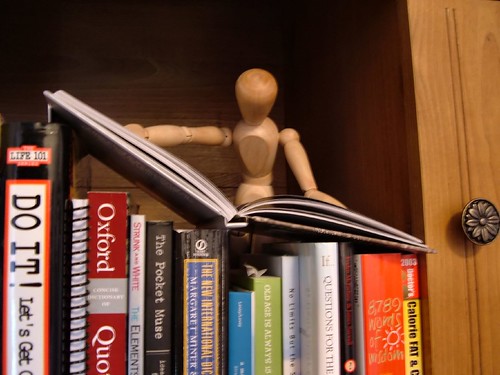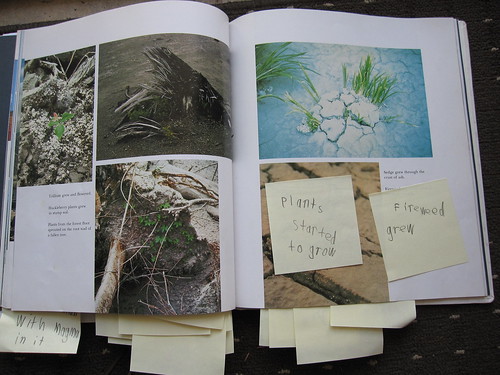Creativity isn't a spigot that you can turn off and on. Even the most brilliant creative minds need inspiration before the ideas can flow freely. Some need to put themselves in a specific environment or mindset, or both, before they can let go and create. Once you get into that zone where everything is flowing perfectly, the last thing you want to do is stop, look something up and then get started again.
But you should anyway. Because if you aren't taking the time to do your research, you're only doing half the work.
Details, Details, Details
So what's it matter if you put your characters in the middle of a "famous landmark" that doesn't actually exist, or talk about the beautiful oak trees found in a tropical forest? What if you've got them eating unspecified meadow mushrooms and berries from the shrubbery, if the plot is exciting and the intrigue is abundant? Who really cares about that crap anyway?
Your readers do, and if you make a mistake they're going to be very displeased indeed. Even the smallest of details can set a reader on edge, and that's why you've got to take the time to know your settings. The first order of this research business is to know exactly where you're putting your characters and your story. Nail that, and the rest is easy enough to figure out.
Your characters live, love and laugh somewhere. The setting of the story should serve as another character. It's more than a backdrop, it's the stage for all of your action, adventure, romance, mystery -- whatever it is you write about. It's got to be as real to the reader as your main character, because without a place to picture that character what have your readers really got? Pick a real location for your characters. It doesn't have to be your own hometown, it doesn't even have to be a place you've been to before. But once you've picked it, start looking at websites about the area. Lots of cities and states and countries and towns have their own homepages. Find out what's unique about the place, look at it on the map, find photos of it through search engines. See it with your own eyes.
If you're writing a fantasy story about a place that doesn't actually exist in the known world, you've got your work cut out for you. Draw up a map of the world, or the country or kingdom, where your story takes place. No one expects you to be a cartographer, and no one ever has to look at that map but you -- so make it as rough or abstract as your skills require. As long as you have a real reference to look at and draw from, it'll help you flesh out your story. To make the research and the writing much easier, try to base your made-up land on reality. Maybe the weather in your main city is something like London -- gray, foggy, wet. Maybe it's like a tropical island -- sunny, bright, clear. Look at images of these places to give yourself ideas about your own world.
History buffs are among the most unforgiving of readers. If your story takes place in an historic setting, your research has to be utterly meticulous. Look at period maps, and take the time and care to give your story a very specific date to avoid confusing yourself. Once you've got a working date, you'll know just where to look to find setting information so you can place your characters precisely.
Once you've got the setting worked out, start to use it. Find out what's nearby, what (if any) regional cuisine exists, what tourists come to see and what locals love to hide. Learn about the weather, the vegetation, the main methods of travel. Are the streets packed with cars, or foot traffic? Bicycles, or taxis? With online maps, you can actually get street-level views of any current location in the world. This means you can literally walk along the same streets as your characters, see the same buildings and sights. What will
that do for your writing?






















